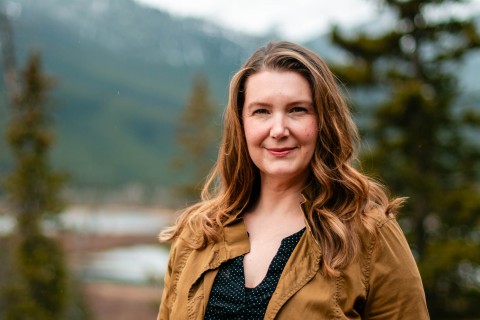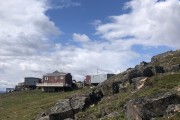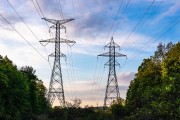
Lynne is the director of the Pembina Institute's renewables in remote communities program, supporting the clean and equitable energy transition of remote communities in Canada. She is mixed blood Inuk, raised in the place known as Calgary, within the Treaty 7 territory of Southern Alberta and Otipemisiwak Métis Government (Districts 5 and 6).
Much of her career has been focused on coordinating and leading projects with Indigenous communities, focused on social and economic development and multistakeholder collaborations. This work experience led her to a deeper understanding of the importance of Indigenous sovereignty and further developed curiosities about the energy challenges faced locally and globally, including the vital role of Indigenous Peoples in the transition to clean energy.
She holds a BA in communication and culture from the University of Calgary and an MA in environmental education and communication through Royal Roads University. You will find her (re)creating in the fresh air, watercolour painting, beading, and spending time as a mother, wife, daughter, sister, auntie, niece, cousin, friend, community member, kin.
Contact Lynne Couves
Lynne Couves's Research & Analysis

A year in review: the transition to clean energy in remote communities
Our top 5 takeaways for remote clean energy in 2025 and what we're looking out for in the year to come

The Iqaluit Nukkiksautiit Project is transformative for Nunavut
What can we learn from the local leaders behind it?


Spark Indigenous Energy Summit
A national summit for Indigenous energy leadership, equity-driven partnerships, and a more sustainable future.

Local progress on energy, Arctic security must survive federal cuts
If federal programming is stripped down, remote communities will be limited in their pathways to achieve energy security.


